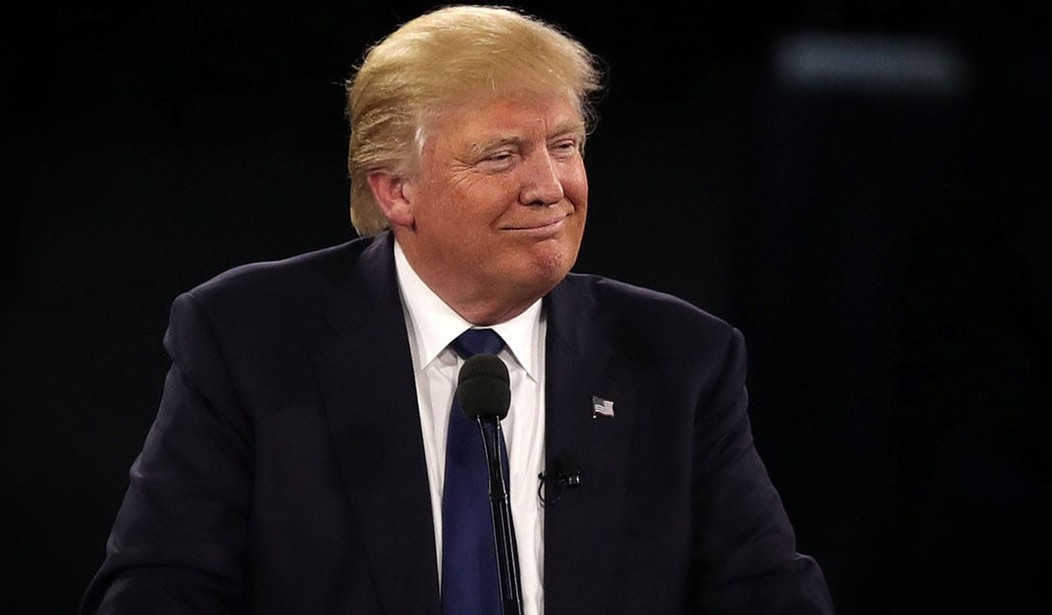On Wednesday, Donald Trump’s widely anticipated speech shed light on his proposed foreign policy. First, pay attention to the venue where he chose to speak.
Trump was invited by The National Interest — a policy journal vigorously opposed to neo-conservatism — and the think tank that hosts it, the Center for the National Interest, which defines itself as a center for “strategic realism.”
His speech was reminiscent of the period before WWII, when — above all other desires — the American public wanted to stay out of foreign wars. Isolationists, who preferred to call themselves “non-interventionists,” created a popular pressure group whose members gave it the slogan Trump now invokes: “America First.” This America First Committee favored building a strong defense that would make America impregnable while working to keep the United States out of foreign conflicts. The similarity in its approach to that taken now by Trump is obvious, whether or not Trump himself knows about the Committee.
Trump’s speech indeed made him look more presidential. As with his AIPAC speech, he read awkwardly from a teleprompter and avoided the spontaneity that delights the mass audiences at his rallies. Thankfully, we didn’t hear about lyin’ Ted or crooked Hillary.
Trump’s speech, which echoed many of his familiar themes, was notable for a lack of specifics. At times he was incoherent and took contradictory positions. Indeed, as our Bridget Johnson notes, a Trump advisor told the press beforehand that “there will be no details in the speech.” Since the devil is always in the details, Americans were left questioning how he would implement his new approach.
Rejecting the nation-building of the previous Bush administration, that idea that America could spread democracy to nations with no democratic traditions or a strong civil society, Trump promised that he would instead seek to foster stability throughout the world. How he intends to do this without some attempt at the nation-building he disdains is open to question.
Much of what Trump said was inconsistent with his earlier statements. For example, earlier he said that we should pull out of NATO. Now he pledges to reform it and to make fighting Islamic radicalism its primary mission.
Foreign policy analyst Fareed Zakaria noted that Trump promises to spread and defend Western civilization while not taking the neo-con approach of spreading democracy. Of course, one cannot do one while rejecting the other.
On Russia, Trump promised that he would seek common ground with Putin since Russia has the same enemy: Islamic radicalism. This must worry our allies in Europe, particularly in Eastern Europe, who are threatened by Putin’s aggression in Ukraine and Crimea. Putin is also trying to weaken NATO entirely. How will our allies who are worried about Putin’s aggression work with Trump if they believe he is abandoning them? Trump rightfully criticized Obama’s decision to end U.S. missile defense for Poland. But wouldn’t Trump’s support of Putin worry the Poles just as much?
Trump implies that a possible area of cooperation with Russia is Syria, where both the U.S. and Russia have ISIS as an enemy. However, Russia has largely been attacking Syrian rebels, whose main goal is to defeat Assad and his brutal regime rather than ISIS.
Trump remained silent on whether he believes the Assad regime should remain in power. A negative answer would put him in direct conflict with Putin, whom Trump has seemed to like ever since the Russian leader said nice things about him. Indeed, when talking about Russian policy and Putin, his optimism is reminiscent not only of Bush’s — who famously looked into Putin’s eyes and liked what he saw — but also of the failed Obama-Clinton policy of a “reset.” That, as we all know, was a complete failure.
Trump adopted Colin Powell’s position that American troops should only be sent into battle with the intent and wherewithal to win. He promised to build up incomparable defense forces, giving the Navy and Air Force the latest in weapons, planes, and ships. However, he did not say how he could do this without greatly adding to the national debt.
Trump was correct with many of his criticisms of Obama’s foreign policy. He agreed with other Republicans — and even Democrats — in claiming that Obama did grievous harm with his “red line” claim on Syria. When Assad violated it, Obama did not follow through.
Trump was also correct with his argument that the current administration badly erred in forcing Hosni Mubarak out of power in Egypt and in helping install the Muslim Brotherhood. The Brotherhood quickly instituted policies harmful to Egyptians and to the U.S. position in the Middle East.
Trump remains a strong supporter of Israel. He said he will treat Israel as an ally again, unlike the Obama administration which has often put pressure solely on Israel while placating the Palestinians. However, one must wonder how Israel will feel about a president who otherwise holds a neo-isolationist position towards the world at large.
Most observers left the speech still wondering who is on Trump’s foreign policy team. We know that the man who introduced him, former Ambassador Zalmay Khalilzad, is one advisor. Another is Walid Phares. But the head of Trump’s foreign policy/national security team is Sen. Jeff Sessions, whose expertise is not in foreign policy. Sessions is most known as a Trump supporter who advises him on immigration.
Until now, most of the foreign policy/national security community wanted little to do with Trump. John Bolton, Gen. David Petraeus, and Dan Pipes had all turned down an offer to join his team. Yet on Wednesday, Bolton called Trump’s speech “strong and impressive,” although he said he didn’t agree with all of it.
It is not surprising that Trump made a point of saying he will bring in new people and has no respect for the supposed experts, who “frankly don’t know what they’re doing.” The danger is that, like Obama, Trump may rely on people who truly don’t know what they’re doing.
UPDATE: 11 p.m. EST
Writing in Politico, Jacob Heilbrunn — editor of The National Interest — makes it quite clear why he invited Trump:
The prospect of a publication like ours — one identified with the “realist” school of foreign policy, which advocates balance-of-power geopolitics and caution abroad — hosting Trump offers an irresistible line of inquiry for anyone searching for what looks like a phantom Trump foreign policy team.
…
Nothing like this has been heard from a Republican foreign policy candidate in decades. Trump doesn’t want to modify the party’s foreign policy stands. He’s out to destroy them.
…
This represents an assault against Hillary Clinton as well as the neoconservative establishment in the GOP.
The think tank sees Trump as an ally in their fight against Republican interventionists, and they welcome a return to neo-isolationism in the name of “realism.” I thank Mr. Heilbrunn for giving us another reason to stand firm against Donald Trump.









Join the conversation as a VIP Member